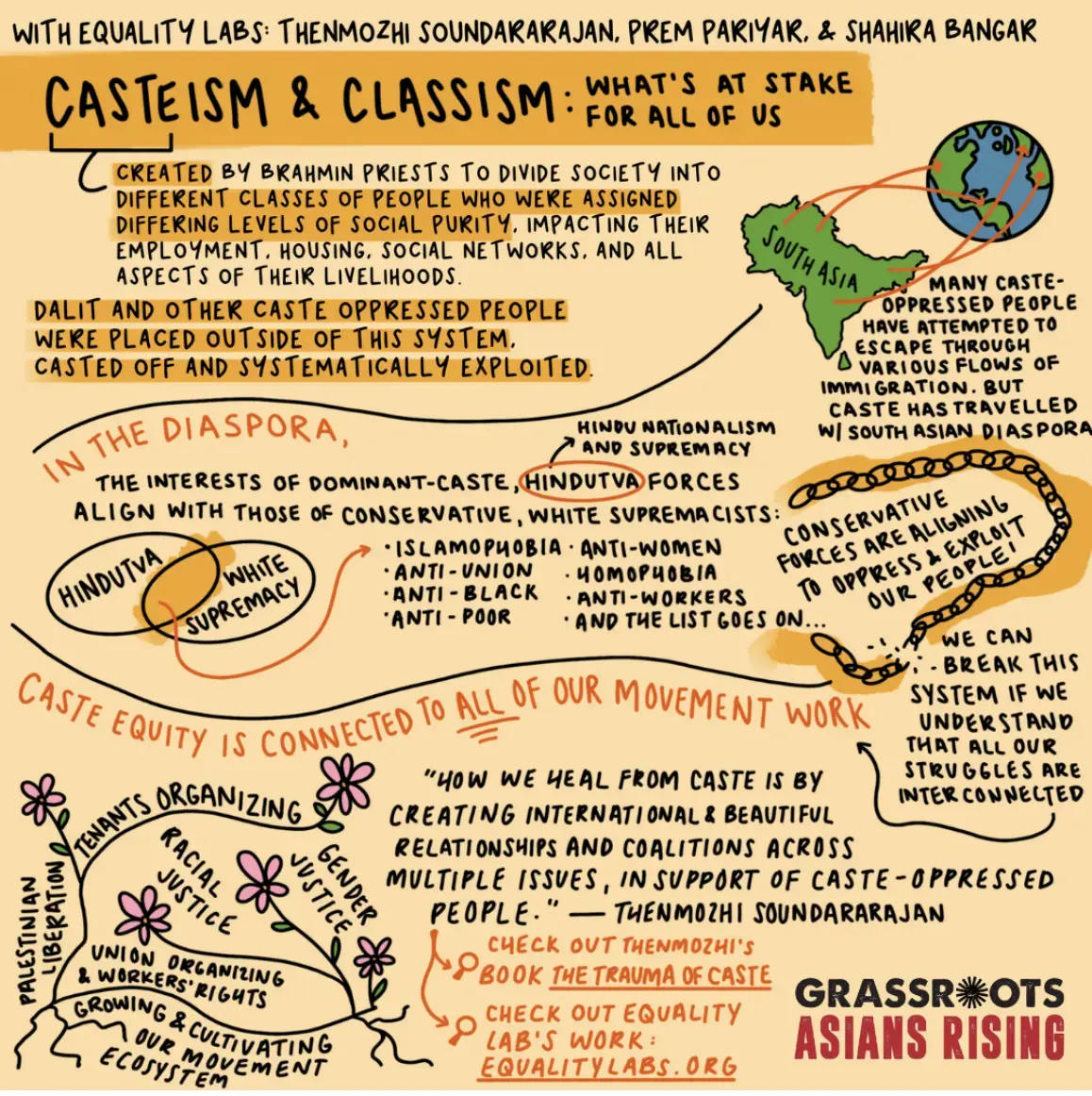Dalit History Month Intersects Caste, Labor, and Diaspora
April is Dalit History Month, an annual observance celebrating caste-oppressed people’s neglected histories, lives, and contributions. The month also commemorates the birth of Dr. B. R. Ambedkar, a champion of Dalit rights and the chief architect of the Indian Constitution.
“Invisibility creates the conditions for violence to happen and perpetuate, so the celebration of Dalit history is to be unapologetically proud of Dalit identity and share with the world its rich legacy of art, music, literature, and the fire of resilience and radical progressive thought,” according to Equality Labs, a Dalit civil rights organization.

According to Equality Labs, although casteism affects at least 1.2 billion people, there is little understanding of what it is and what’s at stake for the most politically, economically, and socially vulnerable and oppressed groups in the South Asian diaspora.
A national reckoning for caste protections culminated last April when CFA activists helped to lead the first-of-its-kind national conference on caste in higher education
The two-day virtual conference explored what caste is, the intersection of caste and gender, building a more equitable future, in higher education, in building union power through educational curricula, and beyond.
Caste divisions can be seen throughout the world, and scholars have long documented the United States’ own enduring caste system. CFA was one of the first labor organizations to adopt caste protection from discrimination in our Collective Bargaining Agreement.
This last Tuesday, the California Senate Judiciary Committee unanimously voted to move the anti-caste discrimination bill, SB 403, forward to the Senate. CFA has been a supporter of the bill.
Students and faculty can learn more about Dalit communities and the impact of caste oppression by checking out Equality Labs’ reading list.
Join California Faculty Association
Join thousands of instructional faculty, librarians, counselors, and coaches to protect academic freedom, faculty rights, safe workplaces, higher education, student learning, and fight for racial and social justice.